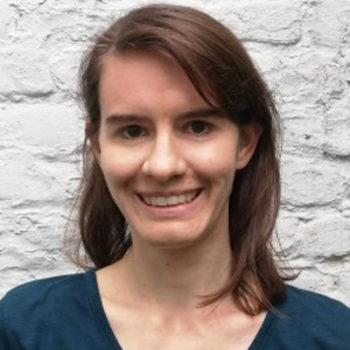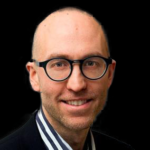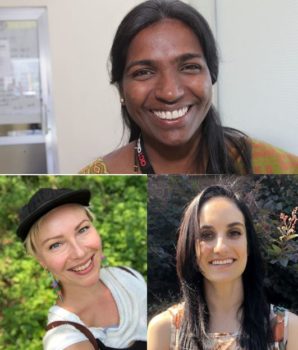Statement
Recommendations for a transformative Brussels IV Conference 2020:
Towards supporting just peace through dialogue, cessation of violence and meaningful partnership with the local civil society
The Brussels conference represents an opening for leaders to make tangible commitments to support a just peace through dialogue. Leaders should continue to strengthen pledges to end the ongoing violence, help preserve the integrity of Syria’s social fabric, restore basic services, maintain the religious and ethnic diversity of Syria’s population and protect civilian infrastructure. We should be aiming at facilitating in-roads for a peaceful resolution of the conflict and the sustainable return of Syrian displaced and refugee populations, voluntarily, in safety and dignity.
ACT Alliance brings together recommendations from its members both for Syria and neighbouring Hosting Countries. We reinforce the request raised during last year’s conference and emphasise the importance of multi-year funding to meet our commitments to refugees and displaced Syrians. Livelihood and protection require multi-year interventions: to change harmful norms, negative attitudes, and behaviour as well as to build local and sustainable assets.
Implications for Programming in Syria
The massive and irregular displacements of people and the destruction of infrastructure coupled with the economic effects of COVID-19, have depleted livelihood activities and plunged a majority of Syrians (an estimated 69%) into extreme poverty.[1] The severity and complexity of the situation has led to an acute need in the case of 5 million Syrians.[2] Negative coping mechanisms for unrelenting and unpredictable economic shocks are reported across Syria. These include, for example, reduced food consumption, early marriage, and child labour. With all nations suffering the effects of COVID-19, now is the time to come together and reiterate the need for the cessation of violence. With all nations suffering the effects of COVID-19, we must intensify and reiterate the call for a “complete and immediate” nationwide ceasefire in the country to allow for an all-out effort against COVID-19 and for recovery.
ACT Alliance members active in Syria and the region, condemn all forms of violence, particularly violence against civilians and demand the protection of Syrians’ rights to peace, ensuring their dignity and access to livelihoods. We urge the EU and all global donors to make sizable pledges to meet the demands for adequate funding for the Syria Response Plan, and to meet Syria’s increased necessities under the Global Humanitarian Response Plan, made even more acute by the COVID-19 pandemic. We encourage the EU and its Member States to fill the existing gap for 2020 to ensure that the needs of all people are met, and to support local civil society and faith actors.
Progress in localisation: governance and funding
While some improvements have been made in coordination with local civil society and the EU, all global donors should ensure increased representation of men and women representatives of Syrian civil society in international decision-making platforms and during cluster meetings of international NGOs and multilateral bodies. Given the interplay between population movement dynamics and the search for solutions to displacement, in view of the overall peacebuilding efforts, effective ownership by the local Syrian civil society is paramount to lasting peace. In line with the localisation agenda and in recognition of the important role of Syrian civil society, a dedicated effort to increase the participation of Syrian civil society actors should be made in current humanitarian responses and in the future of Syria.
Local civil society, including members and partners of ACT Alliance, continue to stress the need to look at sustainable programming to ensure a dignified humanitarian response. COVID-19 has brought new challenges to Syria, and changes to programming will be required; WFP has reported a doubling of food prices in the last 12 months[3], and the general worsening condition of the Syrian economy is increasingly undermining livelihoods opportunities for many. Aside from UN pooled funds, local civil society organisations have had limited access to new funding to scale-up programmes and to meet the challenges posed by COVID-19, resulting in the reallocation of current grants.
While donor flexibility is highly appreciated in regard to COVID-19 programming, the diversion of funds has resulted in gaps in much-needed ongoing programmes. For example, programmes supporting food supply or rural livelihoods are lost or reduced to meet immediate needs due to the pandemic. We call for multi-year flexible funding. Covering overhead costs, core funding and investing in capacity sharing will help to ensure that local civil society can operate in an efficient and principled manner while mitigating the impact of proliferating compliance requirements on localisation efforts. In the Syrian context, such funding should account for assets that are vital for project implementation, safety and/or organisational financial sustainability.
As part of the localisation work in Syria, the EU and its Member States must ensure the inclusion of women and children, marginalised communities, minorities, vulnerable groups and persons living with disabilities in project design, monitoring, implementation and evaluation. All these categories should be encouraged to be at the centre of their own decisions regarding their future[4].
Religious pluralism: Though the majority of Syrians identify as Muslim (Shia and Sunni), the country is home to a vast diversity of religious and ethnic groups, including Kurds, Armenians, Turkmen, Alawis, Greek Orthodox, Syrian Orthodox, Catholic, Druze, Yezidis, Baha’is, and Jews. Historically, the region was known for its cohesive identity as well as a deeply rooted tradition of religious pluralism. The war has engaged multiple factions, with some organised along religious lines. By pitting groups against one another, the conflict is reinforcing religious tensions and is reshaping the religious landscape. To promote social cohesion, it is important to rebuild the traditional religious pluralistic nature of the country, in coordination with traditional faith communities.
Local faith NGOs have been working inside Syria as special status charities since before the conflict and have more freedom of movement to outwork projects often reaching those hardest to access. It is imperative that EU Member States look at the thriving civil society inside Syria as an avenue to build religious pluralism and a robust, cohesive society. In practice, this means concrete steps toward systematic and effective consultation and collaboration by the EU Delegations and ECHO country offices at all stages of programme cycles and inclusion in decision-making structures, ensuring that risk is not transferred to the local civil society.
ACT Alliance members call on the EU and its Member States to consider faith actors in the country not only as important stakeholders in the humanitarian response but also as partners best placed to implement social cohesion projects on the ground.
Ensuring effective delivery of Aid: With the current COVID-19 pandemic compounding an already devastated infrastructure, it is vital that the EU leads on actions to ensure increased and unhindered humanitarian access across Syria. This is needed to ensure that principled life-saving assistance and critical supplies reach those most in need in a sustained manner. With overlapping restrictions imposed by various countries, INGOs and civil society are faced with overwhelming bureaucracy due to companies and banks de-risking in fear of violating sanctions, counter-terrorism measures and anti-money-laundering obligations and risk assessments, making everything from importing goods, transferring funds for programming, to paying staff difficult.
While sanctions do not limit humanitarian goods or transfer of EU funds, ACT Alliance members ask the EU and its Member States to provide guidance to the private sector, specifically banking institutions, to ensure the effective delivery of aid to Syria5. In addition, it will be important to build on good practices to facilitate dialogue between banks, governments, NGOs and the private sector at the national level. ACT Alliance members endorse the suggestion from the Voluntary Organisations in Cooperation in Emergencies (VOICE) for EU institutions to support the dialogue between NGOs and the European Bank Association[5].
Implications for Refugees and Host Communities
Supporting livelihoods and inclusive economic recovery: The global economic crisis and the depreciation of the local currency in Lebanon, have had severe implications on the refugees and host communities and their purchasing power in Jordan and Lebanon. Due to the implementation of the lockdowns and curfews, many refugees and vulnerable local populations have been unable to work, particularly those previously working as daily wage labourers. ACT members in Lebanon and Jordan have reported a negative impact on food security, in a time that businesses are closed, and daily work opportunities are diminished. Refugee families are challenged to generate income to provide for food and shelter for their families. Opportunities for generating any income is extremely low, in a time when the value of the cash support received is reduced. Negative coping mechanisms adopted by refugee families are a main concern.
Refugees and vulnerable families urgently need to receive cash support and to access livelihood opportunities to cover their families’ basic needs. Responding organisations need to review the value of cash support based on the changing context and to provide cash/food assistance to reach additional families affected by the worsening economic context. Innovative and contextualised livelihood opportunities need to be implemented to avoid long-term dependency on aid while creating income-generating activities for host and refugee communities while tackling increased tension over job competition. Support to agriculture and local industry should also be considered.
Children’s needs – protection and education: COVID-19 closed schools and other educational institutions in 2020, leading to disrupted education for Syrian refugee children in Host Communities. Confinement poses increased risks of violence and GBV against children. Low enrolment also tends to increase child labour and negatively impact child development. As the situation continues, there could be an additional increase in child marriage as families become desperate.
In line with the No Lost Generation Vision, and as a result of the multiple crises Lebanon is specifically going through, it is even more urgent to ensure that children and youth have access to certified quality education while benefiting from a protective environment. Duty bearers should adapt swiftly to innovative education using advanced and accessible technology while respecting the protective role of Education in Emergencies (EiE), including child protection (MHPSS and referral pathways), and outreach to children with special needs.
Protection: Economic deprivation, psychosocial stress, and containment measures are leading to a substantial increase in Gender-based Violence and Sexual Gender-based Violence, especially intimate partner and domestic violence. ACT Alliance Members call for more support- technical and financial, for a multidimensional response including e-modality and partnerships with local respondents, to engage underserved communities and GBV survivors, and to ensure that accessible services and referral pathways are appropriate and relevant to their immediate needs.
Displacement, Resettlement, and Return: By the end of March 2020, 1093 Syrian refugees returned from Lebanon to Syria since the beginning of the year as part of the self-organised and General Security facilitated group return. In parallel, individual return took place during the same period leading to 2647 refugees returning to Syria. Current resettlement schemes remain limited compared to need on the ground and absence of other durable solutions. Resettlement dropped from 25,000 cases in 2016 to 8,500 cases in 2018. 11.6% of the total Syrian refugee and asylum seeker population in the world is in Europe, while 87% is in the Middle East and North Africa (MENA) region and Turkey [6] . The burden of the Syrian refugee crisis remains on the shoulders of Syria’s neighbouring host countries.
Despite the COVID-19 pandemic, we should not take the need for durable solutions and other forms of humanitarian admission off of the agenda. It should remain a shared responsibility by the international community contributing to refugees’ protection.
Download the full statement
 This blog post was written by Ruth Watson, Humanitarian Policy & Practice Officer at
This blog post was written by Ruth Watson, Humanitarian Policy & Practice Officer at 
